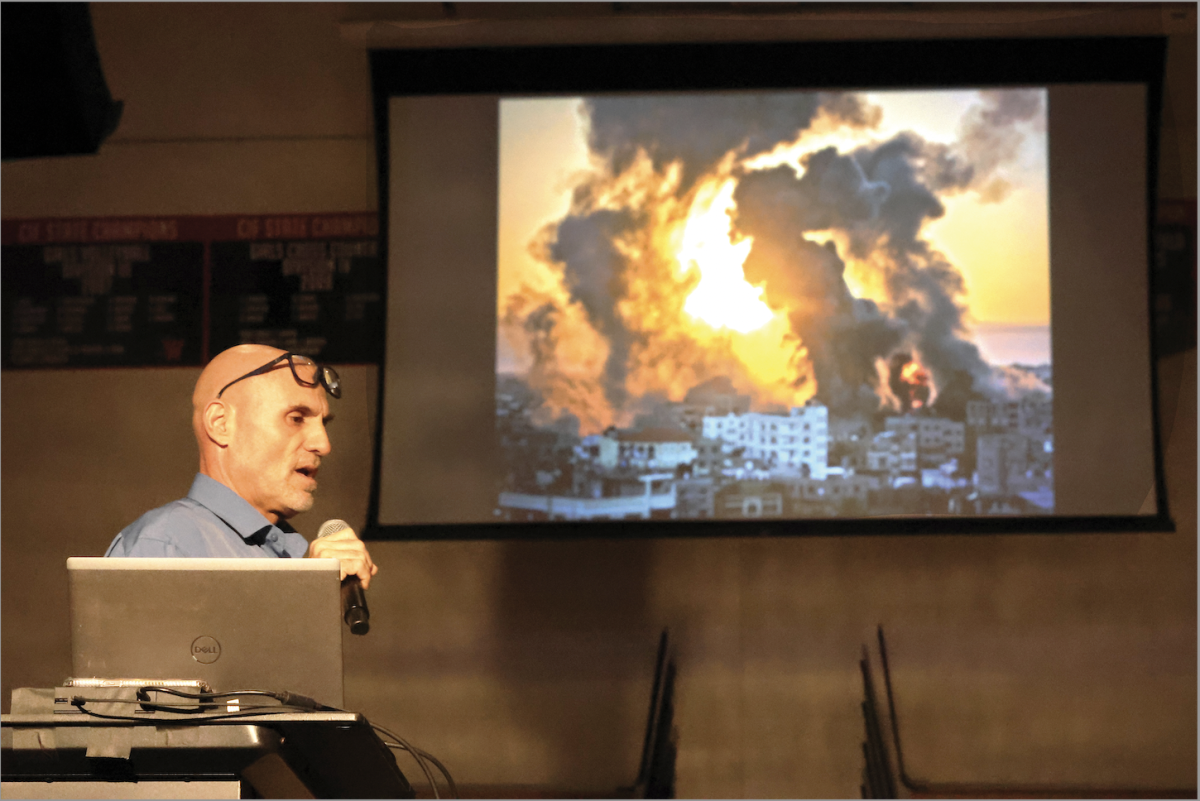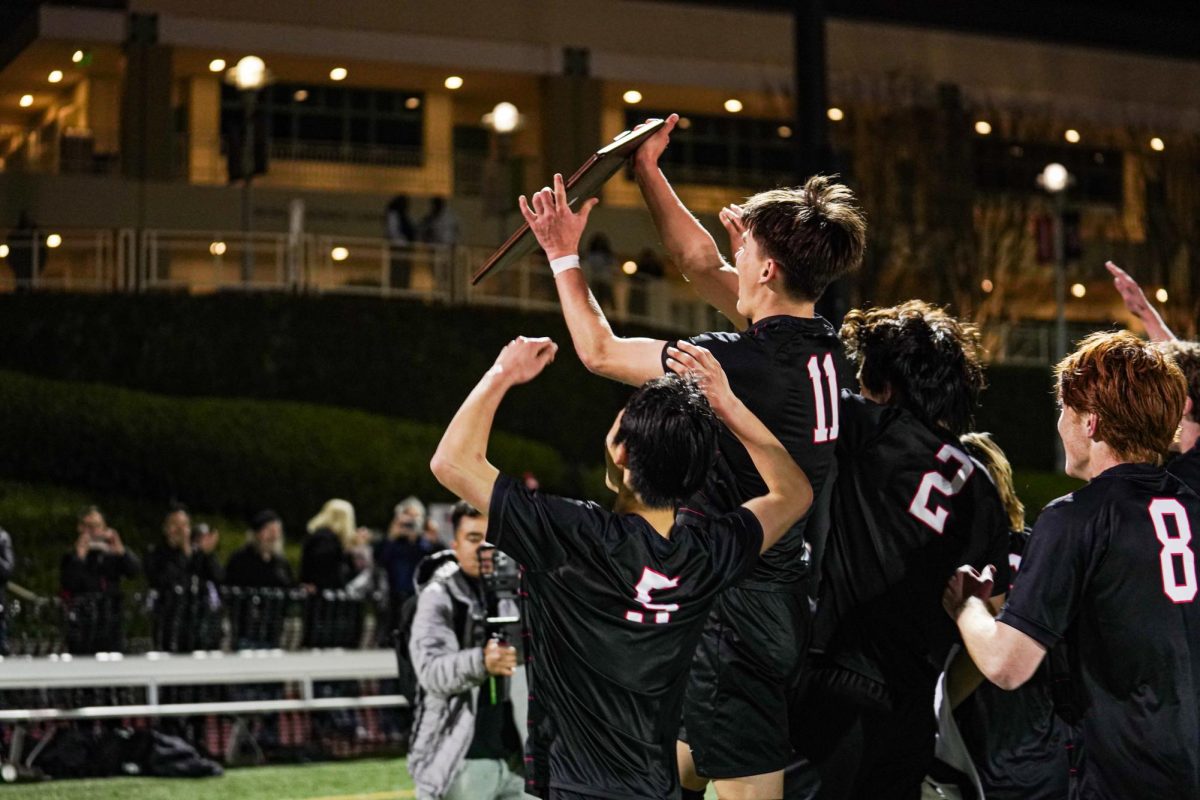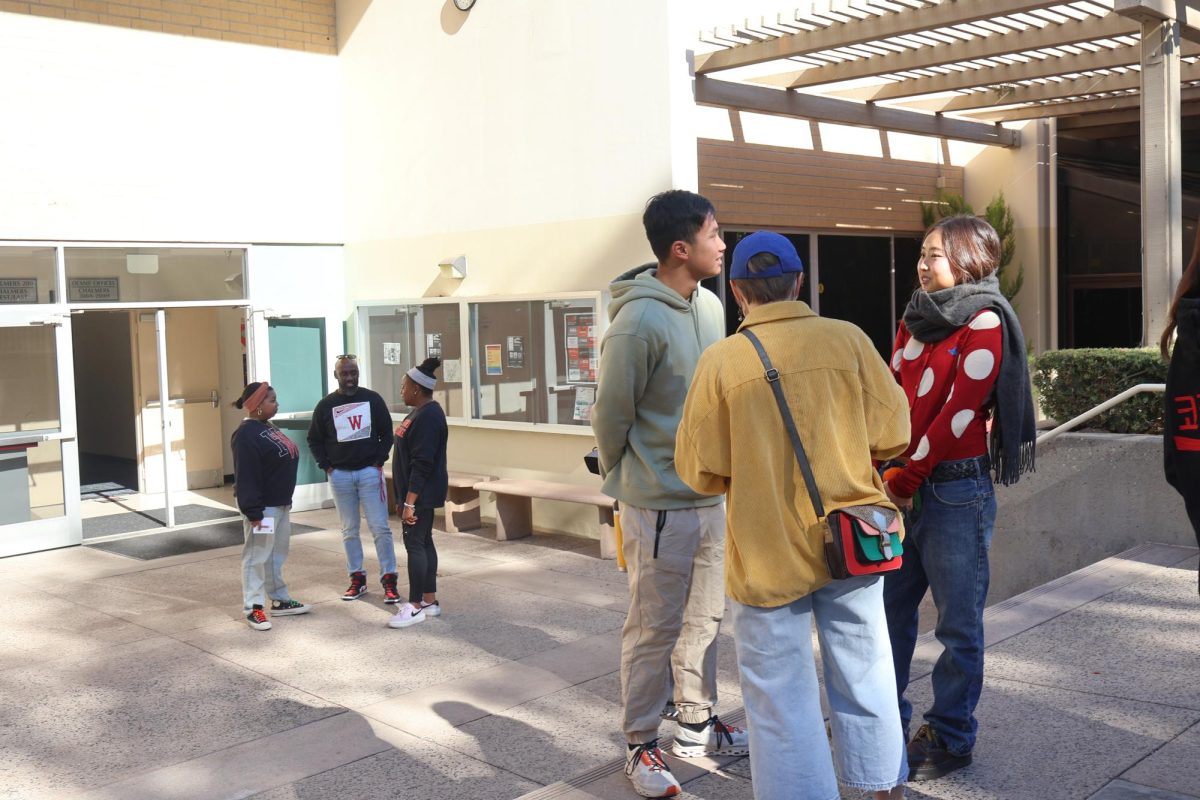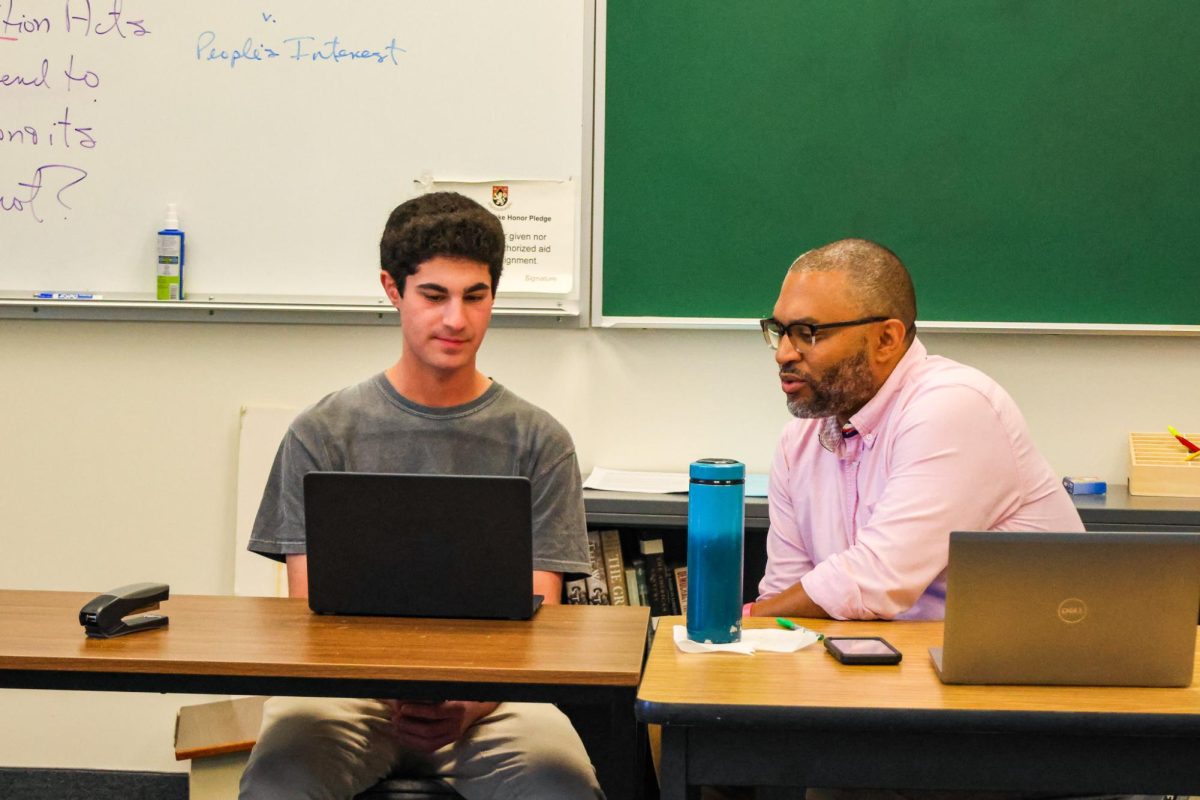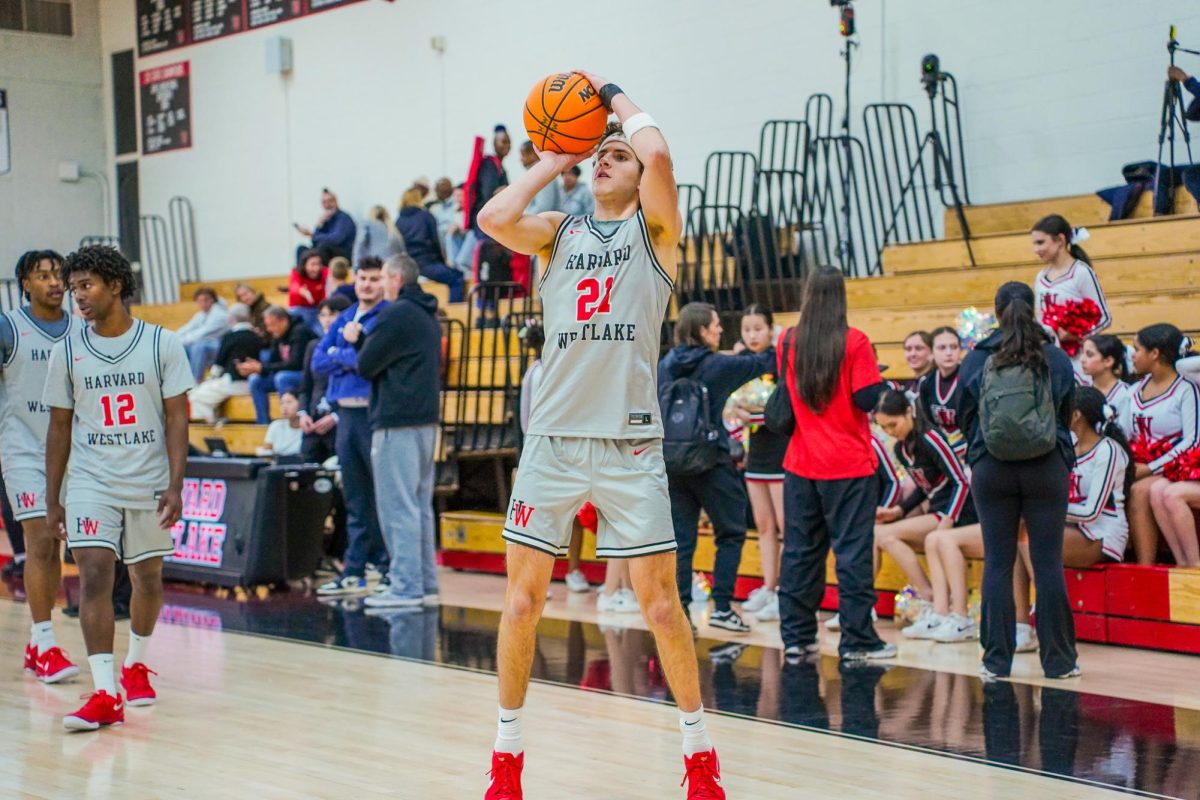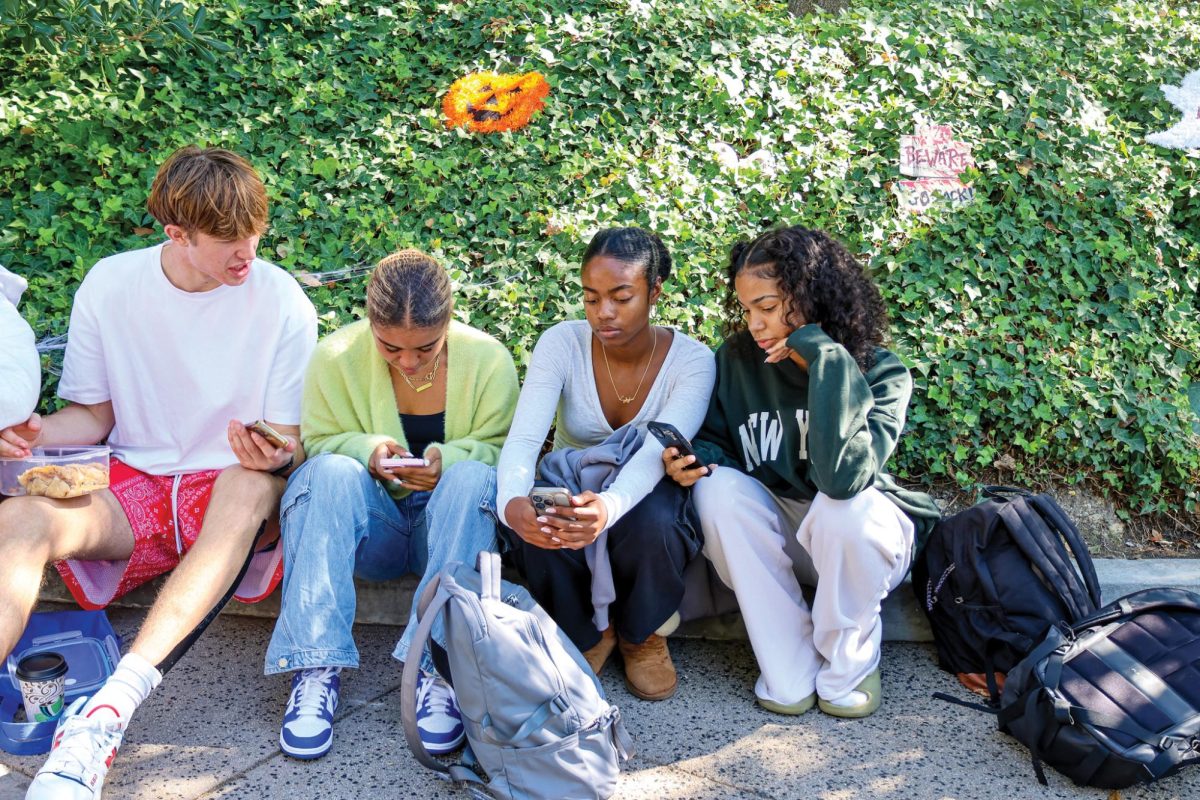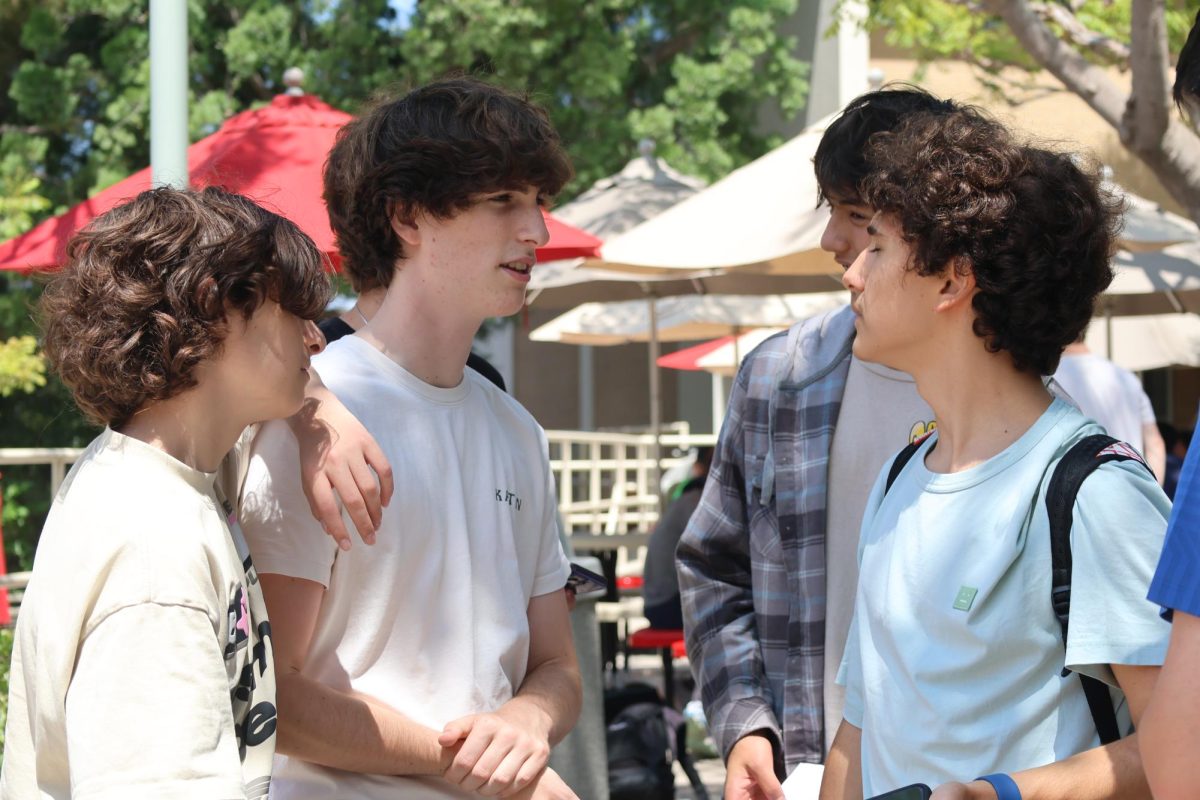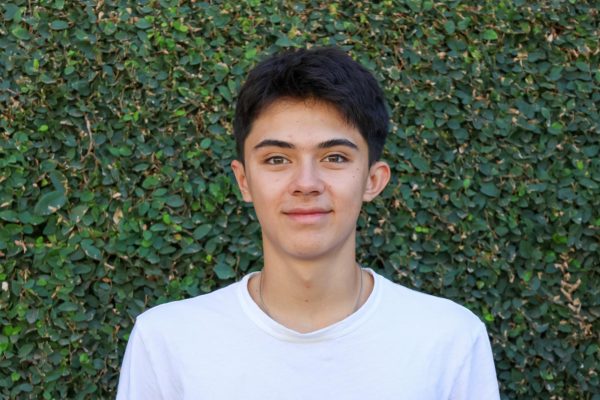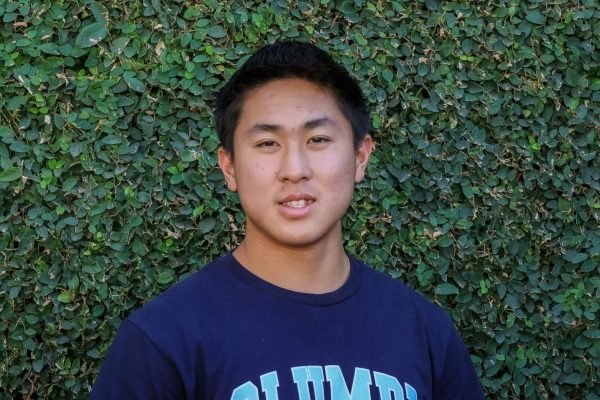In response to the Israel-Hamas war, the school and Jewish Club held a series of mandatory and optional speakers. History and Middle East Studies Teacher Dror Yaron spoke to all sophomores, juniors and seniors about the history behind the conflict. In addition to the mandatory class meetings, Yaron and StandWithUs Senior Educator Charlotte Korchak have both spoken to Jewish Club.
The day after Hamas’ attack on Israel on Oct. 7, President Rick Commons and Head of School Laura Ross sent an email to the school community. Commons said he and Ross decided to officially designate and recognize the attacks as terrorism.
“It was our decision that what took place Oct. 7 was terrorism,” Commons said. “Clear and simple. We decided to announce that it was terrorism and not to shy away from naming the moral wrong that had taken place and taken so many innocent lives in that horrific experience.”
In the email, Commons and Ross also wrote that the the school will be working to provide resources to students struggling with the tragedy. Head of Upper School Beth Slattery said the school’s main priorities are informing and aiding the student body.
“Schools are about education and support,” Slattery said. “Our job is to educate people, and that’s why we have had mandatory class meetings with Yaron to give some background to people. And then support, because we have a number of kids, families, faculty and staff who are really directly impacted by this, we are trying to continue to have kind of support for them.”
Former History Teacher Peter Sickle ’85 was on a routine business trip to Los Angeles from Tel Aviv, Israel at the time of the attacks. He and his wife have three kids, aged 19, 13 and seven, and have lived in Tel Aviv since 2008. Sickle said a text message from his wife was the first he had heard of the attack on Israel from Hamas.
“The first I heard of [the attack] was getting a [text] from my wife saying ‘We’re okay’,” Sickle said. “I thought, ‘Okay from what?’ It was 7 a.m. in Israel and 9 p.m. in L.A., but I wasn’t getting flash reports, so she was the one who had alerted me to it. By the time I woke up the next day, the reality had set in.”
Sickle said his oldest child is currently serving in the Israeli Defense Forces (IDF) army, and said he and his wife decided it would be best to take their younger children to Los Angeles immediately following the attack.
“My oldest daughter’s in the army,” Sickle said. “Luckily, she’s in the West Bank. She was drafted out of high school, and she’s almost halfway into a two-year stint as a draftee. We decided to take our two younger kids out. I flew from Israel to [Los Angeles] on the 12th, and after a few weeks we decided that it was safe enough to take them back to Tel Aviv.”
Jett Jasper ’26 said he believes in a more free Palestine, rather than Gaza and the West Bank being under Israel’s control. He said he disagreed with aspects of Yaron’s presentation and talked with him after about it.
“My friend and I felt that the original presentation to sophomores and juniors was more one-sided,” Jasper said. “We talked to [Yaron] about revising it to get views from both sides in the presentation to seniors. I’ve been talking to different people, and there are some people [whom] I’ve been trying to [tell] that I don’t like Israel’s government, but that doesn’t mean I’m antisemitic.”
In addition to the mandatory meeting, Jewish Club member Edward Ward ’25 attended some of the optional speaker events. Ward said he has been able to have productive conversations with people on both sides of the war.
“I’ve spoken with a lot of my friends, people who have connections on both sides of the conflict, both Palestinian and Israeli,” Ward said. “Those conversations have revolved around how sad it is that so many individuals have to suffer so much. What I’ve appreciated the most though is that everyone has recognized how evil the events of 10/7 were, which has allowed for many productive conversations regardless of personal beliefs.”
Slattery said the complexity of the issue has made it difficult to cultivate a space that supports the whole community.
“It is complicated because we have a lot of people in pain right now,” Slattery said. “What has been challenging for me is that for some people, it seems like a binary issue. [Like] if I say something that is perceived as pro-Israel, then that means that I’m anti-Palestinian, and if there’s something that expresses empathy for the Palestinian people, that means that I’m anti-Israel. What I’d really love is for us to be able to be in a space where you can have support for Israel and you could have support for Palestinians.”


























